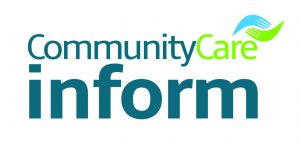
A council breached the Care Act by setting an arbitrary upper limit for a woman’s live-in care that failed to cover the costs of meeting her needs, the Local Government and Social Care Ombudsman has found.
The ombudsman found that Havering council allocated Mrs Y, who has advanced dementia, its standard rate for live-in care in November 2018 in the knowledge that none of the agencies on its provider list met this rate. This meant she had to cover the shortfall using her own savings. This was in breach of the requirement under the Care Act for a personal budget to be sufficient to meet the needs a council is required to meet.
The failing was one of a number of faults by the council uncovered in the investigation including:
- failing to meet Mrs Y’s eligible needs for home and day care following an assessment in September 2018, which resulted in her having to meet the costs herself and her daughter, Ms X, having to contact the council to say her mother’s condition had deteriorated;
- failing to arrange overnight care for Mrs Y after a reassessment in October 2018 concluded she needed this, which led Ms X to set this up herself;
- waiting six weeks to carry out an urgent assessment of her capacity to make decisions about her accommodation and care, during which she was left at risk;
- not backdating payments for care Mrs Y should have received to the correct date;
- causing Ms X “unnecessary stress and frustration” by requiring her to chase the authority numerous times for responses to communication, copies of documents, financial assessments and to start a direct payment application.
Full reimbursement
Havering has agreed to the ombudsman’s proposed remedies: to establish how much Mrs Y has paid to cover the shortfall in her care and reimburse her in full; reassess her personal budget, taking account of the cost of available care and providing Ms X with a written apology and £250 for the failings and the trouble she had been put to. It also accepted his recommendation to consider whether other service users have been affected by arbitrary upper limits on care rates and take any necessary action to address this, and amend procedures to ensure it doesn’t set arbitrary limits on any care provision.
Until July 2018, Mrs Y had privately funded her home care. Then her funds fell below the threshold for help with care fees, leading Ms X, who manages her mother’s paperwork and finances, to contact the council requesting an assessment.
Related articles
A needs assessment was completed in August, concluding Mrs Y needed support in all areas of daily living. The assessor recorded that she was also at significant risk of wandering and had difficulty retaining information in regard to her care needs.
The case notes show the social worker submitted a funding request in September 2018, for three home care visits a day and three days at a day centre, which was agreed on the same day.
However, the ombudsman found the council failed to communicate the approved funding request to Ms X or to provide the funding for Mrs Y’s care, meaning she had to use her savings to continue paying the care provider.
Delayed capacity assessment
On 3 October, a social worker visited Mrs Y to reassess her needs and found she was in need of overnight care and had little insight into her needs. The social worker said the council would urgently undertake an assessment of Mrs Y’s mental capacity but this wasn’t started until 16 November, which the ombudsman found was a fault. It meant that she was left at home and at risk and that a best interests decision about her care was delayed, as the assessment concluded she was unable to make decisions about her accommodation and associated risks.
The council also failed to send Ms X an accurate copy of the assessment until February 2019, which the ombudsman found was a fault.
The council’s failure to provide overnight care after the 3 October assessment meant Ms X was forced to take matters into her own hands and arrange a live-in care service, which was not her responsibility.
A care and support plan for Mrs Y was not completed until 16 November 2018, recording Mrs Y needed a live-in carer to provide support in all areas of daily living, including support to engage in social activities. Ms X wasn’t sent a copy of this until February 2019, which was another fault.
Arbitrary care rate set
The council decided on 30 November to fund a live-in carer at a standard weekly cost of £854, backdating the funding to 16 November 2018. The ombudsman found the council was aware none of the agencies on its provider list provided live-in care at the council rates. As a result, Mrs Y had to top up her payments and in May 2019 was recorded as paying £853.16 during the month.
The Care Act statutory guidance says the local authority “should not set arbitrary upper limits on the costs it is willing to pay to meet needs through certain routes – doing so would not deliver an approach that is person-centred or compatible with public law principles”.
The ombudsman also found the council’s decisions to backdate payments were wrong. She was eligible for funding for live-in care from October 2018, the date the assessment was completed, rather than mid-November, the point at which the council agreed to fund from
Council apology
A Havering council spokesperson said: “We’re very sorry for the distress that this has caused our resident and her family. Our adult social care team has worked closely with the family to act on the ombudsman’s findings and have remedied our error.
“We’ve worked to identify other residents who may have been affected by historical upper financial limits to ensure their needs are properly met, and in the majority of cases the direct payment package has been appropriate.
“New cases are assessed and care needs are funded according to their need. Current practice already ensures the correct balance between meeting the person’s needs and paying the appropriate amounts for care.”
 Resources on Community Care Inform Adults
Resources on Community Care Inform Adults
The Care Act knowledge and practice hub on Community Care Inform Adults contains practice guidance and legal information about the application of the legislation to assessment, planning and self-directed support. Resources include Financial assessments under the Care Act 2014 and a guide to assessment.
Not sure if you have access to Community Care Inform Adults through your organisation or have other questions? Find help here.


 Family help: one local authority’s experience of the model
Family help: one local authority’s experience of the model  ‘I spent the first three months listening’: how supportive leadership can transform children’s services
‘I spent the first three months listening’: how supportive leadership can transform children’s services  How senior leaders in one authority maintain a culture of excellence
How senior leaders in one authority maintain a culture of excellence  How staff support ensures fantastic outcomes for children and families
How staff support ensures fantastic outcomes for children and families  Workforce Insights – showcasing a selection of the sector’s top recruiters
Workforce Insights – showcasing a selection of the sector’s top recruiters 

 Facebook
Facebook X
X LinkedIn
LinkedIn Instagram
Instagram
Comments are closed.